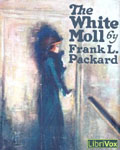
 Out now from LibriVox is an early English translation of an epic poem. Aeneas’s story is the story of the foundations of the Roman republic and the Roman empire. Its ethos plays an important role in shaping who we are nearly two millennia after it was written. I think of it as the first in a long tradition of NOIR LITERATURE. Sure, you thought that the story of Romulus and Remus was grim. But that’s much later in the history of the Roman people – at least according to the greatest Roman poet, Publius Vergilius Maro, better known as Virgil. Virgil wrote this earlier history of the Roman origins for his Emperor, Gaius Julius Caesar Octavianus, better known as Augustus.
Out now from LibriVox is an early English translation of an epic poem. Aeneas’s story is the story of the foundations of the Roman republic and the Roman empire. Its ethos plays an important role in shaping who we are nearly two millennia after it was written. I think of it as the first in a long tradition of NOIR LITERATURE. Sure, you thought that the story of Romulus and Remus was grim. But that’s much later in the history of the Roman people – at least according to the greatest Roman poet, Publius Vergilius Maro, better known as Virgil. Virgil wrote this earlier history of the Roman origins for his Emperor, Gaius Julius Caesar Octavianus, better known as Augustus.
If you’ve read The Iliad you’ve already met Aeneas. The end of The Iliad is the beginning of The Aeneid. Aeneas leads his surviving, but homeless, Trojans to Italy, where they become the ancient ancestors to the Romans. The first six of the poem’s twelve books tell the story of Aeneas’ wanderings from Troy to Italy, and the second set of six books chronicle the war for the new Trojan homeland. In his war against the brave and honorable, but hot-headed Turnus, Aeneas keeps his cool (as a good Roman should). In fact, Aeneas is everything a good Roman should be, full of filial piety, brave, resistant to the temptations of distracting women, and ultimately ruthless.
Some scholars think that the final scene of this epic is unfinished. I understand why they think that, they say the meter is off, that Virgil died before he could make it fully symmetrical. I choose not to believe that. I choose to believe the final lines of this epic poem are exactly as Virgil intended: That is, COMPLETELY AND UTTERLY NOIR.
Here are the final lines of the poem’s Fitzgerald translation:
“Then to his glance appeared the accurst swordbelt surmounting Turnus’ shoulder, shining with its familiar studs – the strap Young Pallas wore when Turnus wounded him and left him dead upon the field; now Turnus bore that enemy token on his shoulder – enemy still. For when the sight came home to him, Aeneas raged at the relic of his anguish worn by this man as trophy. Blazing up and terrible in his anger, he called out: ‘You in your plunder, torn from one of mine, shall I be robbed of you? This wound will come from Pallas: Pallas makes this offering, and from your criminal blood exacts his due.’ He sank his blade in fury in Turnus’ chest…”
Aeneas, who throughout the rest of the poem symbolizes pietas (reason), in this final scene becomes furor (fury). Since this poem is considered the national epic of the Roman people, it seems fitting that the Roman virtues are at the fore of the concluding scene. Romans were vengeful, pitiless, with what Friedrich Nietzsche called a “master morality” – the morality of the strong-willed. What is good is what is helpful; what is bad is what is harmful. For Virgil, and Augustus, the strong-willed Roman morality is not needing the approval of a higher power. For us, in certain circumstances it leaves us saying things like… “Forget it Jake. It’s Chinatown.”
 The Aeneid
The Aeneid
By Publius Vergilius Maro; Translated by John Dryden; Read by various
24 Zipped MP3 Files or Podcast – 13 Hours 39 Minutes [POETRY]
Publisher: LibriVox.org
Published: October 2008
The Aeneid is a Latin epic written by Virgil in the 1st century BC that tells the legendary story of Aeneas, a Trojan who traveled to Italy, where he became the ancestor of the Romans. The first six of the poem’s twelve books tell the story of Aeneas’ wanderings from Troy to Italy, and the poem’s second half treats the Trojans’ ultimately victorious war upon the Latins, under whose name Aeneas and his Trojan followers are destined to be subsumed. The poem was commissioned from Vergil by the Emperor Augustus to glorify Rome. Several critics think that the hero Aeneas’ abandonment of the Cartheginian Queen Dido, is meant as a statement of how Augustus’ enemy, Mark Anthony, should have behaved with the Egyptian Queen Cleopatra.
Podcast feed:
http://librivox.org/bookfeeds/aeneid-by-vergil.xml
Posted by Jesse Willis

 Drive
Drive

 Tarantino’s Jukebox
Tarantino’s Jukebox


![Ellery Queen's Mystery Magazine v47 n04 [1966-04] - The Friends Of Hector Jouvet by James Powell](https://www.sffaudio.com/images13/Ellery-Queens-Mystery-Magazine-v47-n04-1966-04-0050.jpg)

 Lux Radio Theatre – Panic In The Streets
Lux Radio Theatre – Panic In The Streets

 Out now from LibriVox is an early English translation of an epic poem. Aeneas’s story is the story of the foundations of the Roman republic and the Roman empire. Its ethos plays an important role in shaping who we are nearly two millennia after it was written. I think of it as the first in a long tradition of NOIR LITERATURE. Sure, you thought that the story of Romulus and Remus was grim. But that’s much later in the history of the Roman people – at least according to the greatest Roman poet, Publius Vergilius Maro, better known as Virgil. Virgil wrote this earlier history of the Roman origins for his Emperor, Gaius Julius Caesar Octavianus, better known as Augustus.
Out now from LibriVox is an early English translation of an epic poem. Aeneas’s story is the story of the foundations of the Roman republic and the Roman empire. Its ethos plays an important role in shaping who we are nearly two millennia after it was written. I think of it as the first in a long tradition of NOIR LITERATURE. Sure, you thought that the story of Romulus and Remus was grim. But that’s much later in the history of the Roman people – at least according to the greatest Roman poet, Publius Vergilius Maro, better known as Virgil. Virgil wrote this earlier history of the Roman origins for his Emperor, Gaius Julius Caesar Octavianus, better known as Augustus. 